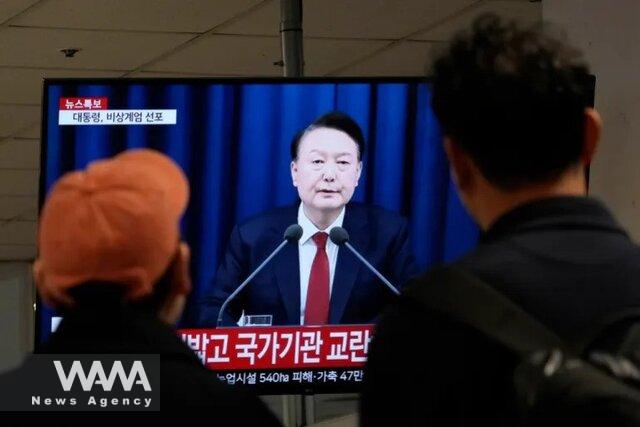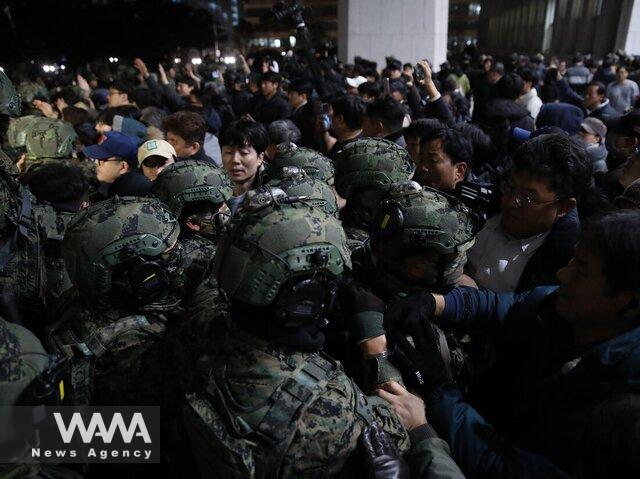Pyongyang in the South: Coup? Martial Law? What’s Happening in Seoul?
WANA (Dec 06) – In recent days, Seoul, the capital of South Korea, has witnessed the deployment of tanks and the declaration of martial law by President Yoon Suk-yeol. Analysts view these developments as signs of a profound political crisis. The tensions, which reportedly began with disagreements over the national budget between the government and the opposition-controlled parliament, appear to have escalated into a broader conflict.
Political Tensions and Martial Law
President Yoon accused his opponents of plotting a coup and declared martial law as a measure to counter the “threat from communist forces.” However, the Democratic Party-dominated parliament annulled this decision with 190 votes. Reports suggest that the president is unwilling to comply with this reversal. Meanwhile, conflicts between the military and police over implementing orders further highlight the depth of the crisis.
Corruption and Legitimacy Crisis
Corruption allegations against the president and his wife have emboldened the opposition to push for his removal. Some observers believe that the declaration of martial law is a preemptive move to block such efforts.

Potential Consequences
The ongoing crisis could have far-reaching domestic and regional implications:
1. Strengthening or Weakening of the Military
If the military supports the government’s consolidation of power, its role in South Korea’s politics could expand. Conversely, a victory for the opposition might lead to a significant purge within the armed forces.
2. Division in the Political Structure
The conflict between the government and opposition reveals deep social and political divides, casting uncertainty over South Korea’s democratic future.
3. Vulnerability of U.S. Military Presence
Political instability might create fertile ground for anti-American sentiments, potentially weakening Washington’s strategic position in the region.
4. Opportunity for North Korea
Pyongyang could exploit this crisis to strengthen its influence on the Korean Peninsula, including by supporting opposition forces in South Korea.
5. Strengthening China’s Role in East Asia
The turmoil in South Korea, combined with existing tensions in Japan, might boost China’s position as the dominant power in East Asia.
6. Challenges for Western Alliances
Weakening South Korea, a key U.S. ally, could jeopardize Washington’s alliance network in its global competition with rival powers.

A Test for Democracy
South Korea’s current political turmoil goes beyond an internal dispute and could have significant repercussions for regional and global stability. As the country’s fragile democracy faces a severe test, regional and global players are poised to capitalize on the unfolding crisis.












